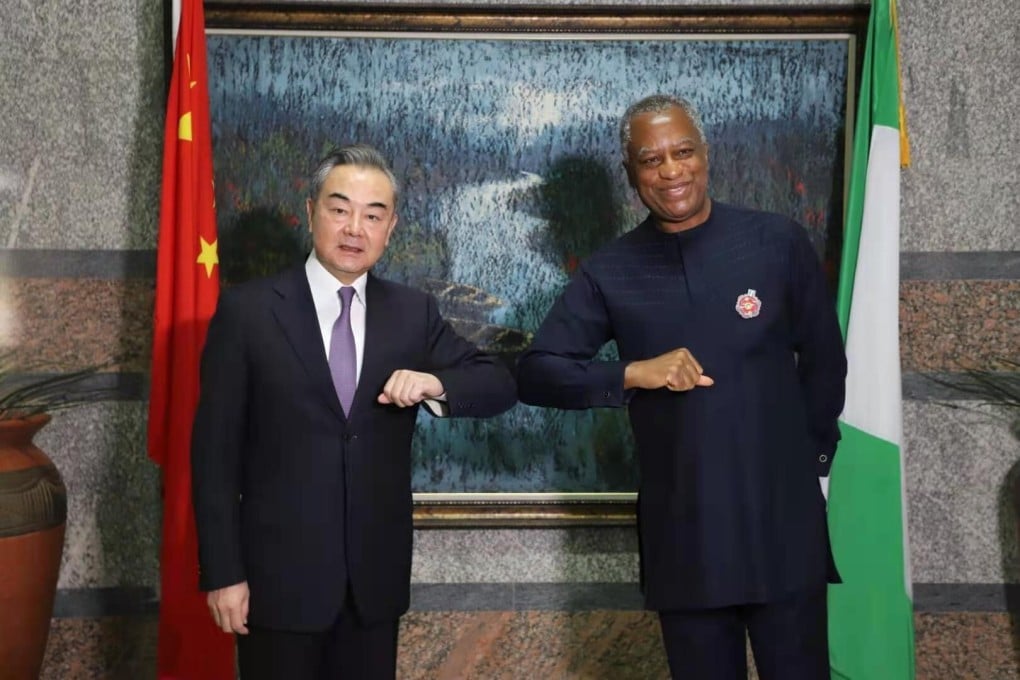Chinese vaccines and more China-funded infrastructure on agenda for Nigeria
- Nigeria ‘engaging with China to help with access to vaccines’ as Africa faces challenge of securing an adequate supply
- Foreign Minister Wang Yi vows to encourage more Chinese investment in Nigeria, while a direct flight link between the countries may be on the cards

“We are also engaging with China to help with regards to access to vaccines for our people,” Onyeama said while briefing the media on discussions with Wang, who is on a five-country trip to Africa that will also take him to the Democratic Republic of Congo, Tanzania, Botswana and Seychelles.
Wang is following a three-decade tradition of Chinese foreign ministers making Africa their first trip of the year.

03:58
Poor countries said to be left behind in Covid-19 vaccine race as rich nations get first doses
The Chinese government had promised that if Chinese vaccine candidates were developed, they would be available to developing nations including in Africa. In his comments to media, Wang said vaccines would be among the top three priorities in China’s work with African countries in 2021, along with economic recovery and transformative development. Of the African nations, Egypt and Morocco have so far ordered Chinese vaccines.